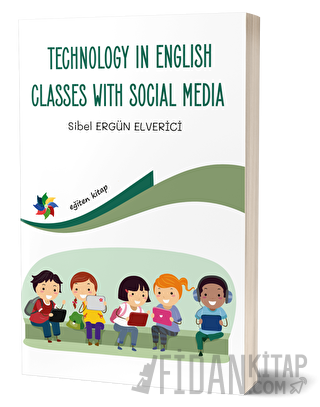
We live in a world where rapid developments in technology and communication have made the communication through the internet essential part of our lives. Undoubtedly, the internet provides the fastest and easiest way to achieve information. Millions of people and therefore groups which are constantly growing and developing are connected to each other through the internet. Since more and more people have access to the internet, more and more people have started use the social media. In this respect, it has become inevitable for educators and researchers to investigate the possible contributions of social media in the context of educational technology including language education. With people’s using social media to stay in touch, get social support, get information based on cooperation and share it, create content and form it by bringing it together, social media sites have started to be considered with their potential to support teaching and learning activities in English classes. Yet, according to the latest statistics, Facebook is still the most popular social media tool today which enables fast and efficient communication and it is believed that primary focus of Facebook is to provide social interaction. Therefore, in the context of educational technology in English classes, this study is a search for the impacts of social media use in English classes, Facebook in particular, on students’ social presence, satisfaction and success.
This work has been produced based on the foundations of my PhD dissertation. I would like to thank my advisor Prof. Şirin Karadeniz for her invaluable insight, patience and guidance throughout the whole work. I would also like to thank Assoc.
Prof. Mustafa Otrar and Prof. Dr. İlhan Varank for their for his continuous encouragement and support all through my educational journey. It would have been impossible to finish this work without my friends Funda Aydoğan, Kevser Yıldırım, Selda Kayak and Esin Karataş so more than thanks are needed. I also owe special thanks and gratitude to Özgür Doğan for his patience and understanding. Last but not least, my thanks go to my husband Akın Eray Elverici who always supported me during the whole process. I hope this study works well in the education world for those who try to do best for their students.
Dr. Sibel Ergün Elverici
We live in a world where rapid developments in technology and communication have made the communication through the internet essential part of our lives. Undoubtedly, the internet provides the fastest and easiest way to achieve information. Millions of people and therefore groups which are constantly growing and developing are connected to each other through the internet. Since more and more people have access to the internet, more and more people have started use the social media. In this respect, it has become inevitable for educators and researchers to investigate the possible contributions of social media in the context of educational technology including language education. With people’s using social media to stay in touch, get social support, get information based on cooperation and share it, create content and form it by bringing it together, social media sites have started to be considered with their potential to support teaching and learning activities in English classes. Yet, according to the latest statistics, Facebook is still the most popular social media tool today which enables fast and efficient communication and it is believed that primary focus of Facebook is to provide social interaction. Therefore, in the context of educational technology in English classes, this study is a search for the impacts of social media use in English classes, Facebook in particular, on students’ social presence, satisfaction and success.
This work has been produced based on the foundations of my PhD dissertation. I would like to thank my advisor Prof. Şirin Karadeniz for her invaluable insight, patience and guidance throughout the whole work. I would also like to thank Assoc.
Prof. Mustafa Otrar and Prof. Dr. İlhan Varank for their for his continuous encouragement and support all through my educational journey. It would have been impossible to finish this work without my friends Funda Aydoğan, Kevser Yıldırım, Selda Kayak and Esin Karataş so more than thanks are needed. I also owe special thanks and gratitude to Özgür Doğan for his patience and understanding. Last but not least, my thanks go to my husband Akın Eray Elverici who always supported me during the whole process. I hope this study works well in the education world for those who try to do best for their students.
Dr. Sibel Ergün Elverici










